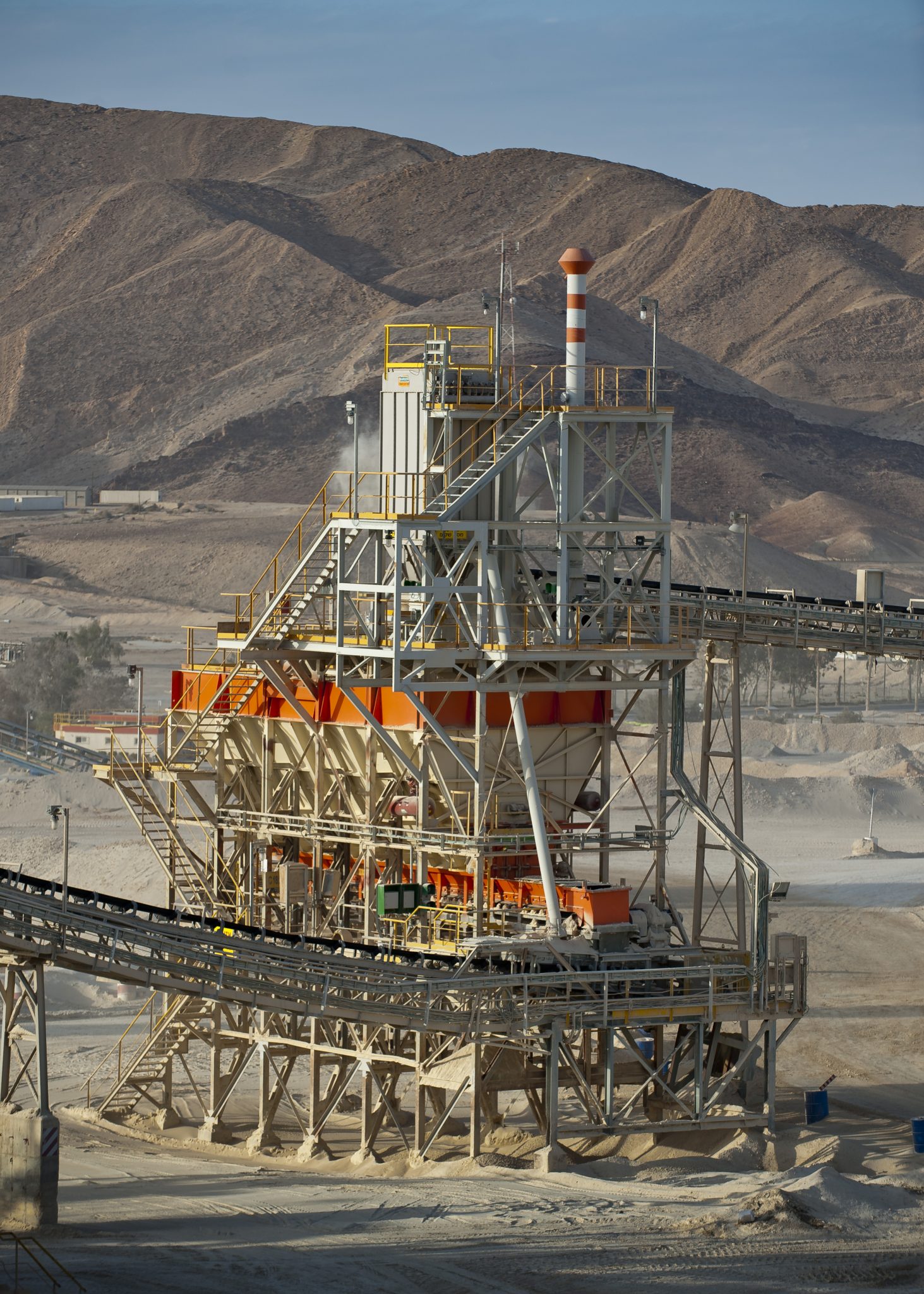ICL Rotem can supply these materials at a lower cost than their current market price. The specialized business unit created by ICL Rotem is currently focused on three main byproducts:
Fluosilicic Acid — FSA, H2SiF6
FSA is a source of fluorine and silica. It offers a fluorine-rich alternative to fluorspar or to fluorine-based chemicals. Research has shown that FSA can act as an alternative raw material for approximately 40% of the global fluorine industry. The technology to isolate FSA for sale as a raw material for the production of downstream fluorine containing chemicals, is proven and available. Rotem’s FSA, an aqueous solution at concentrations of 23-28%, is a high-purity product which ICL Rotem exports to the USA, Australia, Chile, Sweden and Italy for water fluoridation, the silicates industry, metal cleaning, the aluminum industry and other uses.
There are a number of challenges to reaching FSA downstream product markets. ICL Rotem is investigating various possible markets in order to expand its use in the fluorine, metal and construction industries and at the development of new FSA applications for concrete, wood preservation, scaling removal and more.
Currently, ICL Rotem sells approximately 5,000 tonnes of FSA per year, for reuse. Its goal is to find circular solutions for approximately 50,000 tonnes of FSA by 2022. The unit currently sells FSA as a product that complies with water fluoridation standards in the U.S. and Europe. Moreover, the production process is certified according to ISO-14001, ISO-9001 and OHSAS 18001 standards, and is inspected by NSF authorities with respect to meeting U.S. regulations in all matters pertaining to water fluoridation.
ICL Rotem exports FSA for potable water fluoridation to Australia, Chile, Spain, and England and for metal treatment to Henkel, a multinational firm located in Italy.
Business developments and new applications
The cement (clinker) manufacturing industry is an energy intensive industry. Fluorine-based mineralizers and fluxes have been known for decades in the cement industry as additives that can decrease the clinker manufacturing temperature and accelerate process rates, thereby decreasing the energy required in special furnaces used by the white and grey cement industry.
Rotem Israel, in collaboration with IMI, has made significant progress in developing a solid mineralizer for the cement industry, based on FSA. This new product provides an easy and simple method for producing a mineralizer and flux containing CaF2, residues of fluorine salts and SiO2. Examination of FSA as a mineralizer for use in the white and grey cement manufacturing industry is in its initial development stages, together with several cement manufacturing companies in Israel and abroad. The new product brings economic value in energy savings, increased output and improving concrete properties, in addition to ecological value, by decreasing CO2 emissions into the atmosphere.
Oil Shale Ash – SUNNY
Ages ago the Negev desert region of Israel was entirely under a sea, populated by animals, plants, algae and other microorganisms. Gradually the receding sea exposed formations of sedimentary rock, among them fossil rocks that are the source of oil shale now quarried in this region for ICL Rotem’s demonstration oil shale combustion plant for steam and electric power generation (PMA). An outcome of this combustion process is a porous stone residue of considerable commercial value. This residue is marketed under the name of SUNNY and it is used as an absorbent for oil spills and other liquids, for cement production as well as for bedding material. SUNNY is a 100% natural mineral product and it has significant environmental benefits in all its market applications. SUNNY has a high absorption capacity – 70% for water and 70-80% for oil when applying the Westinghouse system for absorption of oil spills. SUNNY is a lightweight product with a density of 630-680 kg/m3. Its uses include:
- Kitten bedding (in Europe)
- Cowshed bedding (most of the Israeli local market)
- Turkey bedding (local market)
- Solidification/stabilization of dangerous effluents
- Soil stabilization
Over the past three years, ICL has conducted a joint development with an engineering company to examine possible additional applications for the construction and infrastructure. Laboratory and field experiments have been conducted with leading concrete companies in Israel, as have other pilots.
Phosphogypsum
Phosphogypsum is a byproduct of ICL’s acid process to produce phosphoric acid. The amount of phosphogypsum that has been stored over the last 30 years at ICL Rotem is estimated at 30 million tonnes. Each year the ICL Rotem adds approximately 1.9 million tonnes of dry gypsum to this pile as well as 1.5 million tonnes of wet-based gypsum.
In recent years, ICL Rotem has tried to find technological solutions for these phosphogypsum mountains.
ICL Rotem has focused on two main applications for phospogypsum which are in a relatively advanced state of technological development in the fields of agriculture, infrastructure and construction. Phosphogypsum is also being examined in connection with a variety of other substances such as sand, cement and ash. Various studies and research that have been conducted in the past for substrate mixtures that contain phosphogypsum have indicated that the material possesses strength and durability, and that it is similar to conventional bedding materials.






